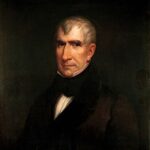The Tippecanoe Battle Decision
William Henry Harrison faced mounting tensions as Indiana Territory governor in 1811. Native American leader Tecumseh had formed a powerful confederation opposing American expansion. Harrison decided to launch a preemptive strike against Prophetstown near the Tippecanoe River. ⚔️ This military action would define his political future but spark decades of debate.
Questionable Military Authority
Harrison assembled 1,000 troops without explicit federal authorization for offensive operations. His orders were defensive in nature, meant to protect settlers. Critics argued he exceeded his territorial authority by initiating combat. The November 7th dawn attack destroyed the Native American settlement. Harrison claimed victory despite suffering significant casualties among his forces.
Political Motivations Behind the Attack
📊 Harrison’s aggressive stance served multiple political purposes beyond territorial defense. He sought to break up Tecumseh’s growing alliance before it became unstoppable. The action also demonstrated American strength to British agents supporting Native resistance. 💰 Land speculation interests pressured Harrison to clear Native claims through military force rather than negotiation.
Impact:
Immediate Military Consequences
The Tippecanoe Battle resulted in heavy losses for both sides despite Harrison’s claimed victory. American forces suffered 62 killed and 126 wounded from the 1,000-man army. Native American casualties remain disputed, but the attack scattered Tecumseh’s confederation temporarily. 🔥 The battle pushed many tribes toward stronger British alliances, escalating toward the War of 1812.
Political Career Transformation
Harrison’s military action became his pathway to the presidency three decades later. “Tippecanoe and Tyler Too” became his successful 1840 campaign slogan. The battle established his reputation as an Indian fighter among white voters. However, historians debate whether the victory was genuine or politically manufactured. Critics argued Harrison provoked unnecessary conflict for personal political gain.
Long-term Native American Relations
📉 The attack permanently damaged American-Native diplomatic relations in the Northwest Territory. Tecumseh’s confederation reformed stronger than before, joining British forces in 1812. The precedent of preemptive military action encouraged similar aggressive policies. 🌍 Harrison’s tactics became a model for later territorial expansion campaigns, contributing to decades of frontier warfare and displacement of Native populations.
